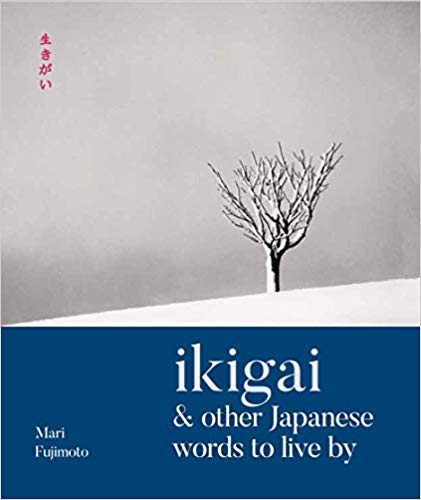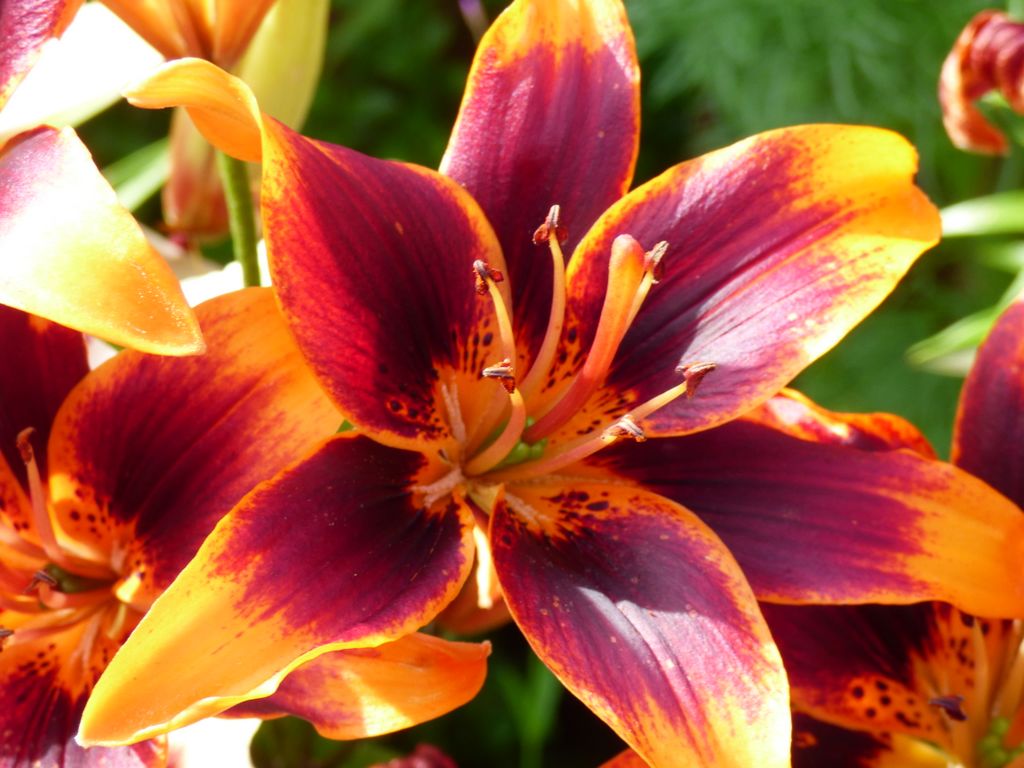
Having been to Japan and so enjoyed the wonderful balance in life there I am delighted to be reviewing ikigai & other Japanese words to live by by Mari Fujimoto. My enormous thanks to Alison Menzies and Modern Books for sending me a copy in return for an honest review.
Published on 24th January 2019 by Modern Books, ikigai is available for pre-order here.
ikigai & other Japanese words to live by

Introducing and explaining some of the most poignant Japanese words, Ikigai is a lifestyle as well as a language book. From the wistful poetry of mono-no-aware, a word that asks us to recognize the bittersweet transience of all things, to the quiet harmony of wa, which knits together all of society’s structures, this book is an introduction to the intricacies and value of Japanese phrases and concepts. It hopes to inspire you to incorporate these words into your own lifestyle and adopt a more mindful attitude to life’s stresses, seeking meaning beyond materialism.
In addition to over 40 ‘words to live by’, Ikigai features musings on the place of beauty, community, time and nature in Japanese thought, teaching mindfulness by way of compelling haikus, and illustrated by Michael Kenna’s reflective photography throughout.
My Review of ikigai & other Japanese words to live by
An insight into Japanese words and culture.
Before I review ikigai & other Japanese words to live by properly, I must say something about the physical attributes of the book. Its robust covers and serene stone coloured endpapers enhance the contents beautifully, as does the smooth, flawless quality of the paper it is printed on. ikigai & other Japanese words to live by would make a lovely gift.
The contents of ikigai & other Japanese words to live by are equally beautifully presented, not just in the stunning black and white photographs that embody real tranquility, but also through the presentation of the words on the page. I adored the use of white space, the punctuation and different fonts that so perfectly mirrored the language, the meanings, the pauses and breaths in the opening sections of each chapter. This book could be dipped into at random, but it felt right to me to read it in order so that my response as a reader paid tribute to the balance and serenity of the Japanese meanings I was discovering. Alongside the wonderful images, this poetic presentation makes ikigai & other Japanese words to live by a beautiful book.
Each of the seven chapters begins with a haiku from Matsuo Basho which sets the tone for the chapter. I loved reading these, both silently to myself and aloud to see how they changed with my different approach and I think this illustrates the success of ikigai & other Japanese words to live by. It’s a book that so cleverly causes the reader to pause. To think. To contemplate. I truly felt it gave me time to breathe and appreciate not only the own life, but to want to give more focused attention to those around me too. A few of the Japanese words resonated with me particularly emotionally, especially shibui and shoganai. My advice would be to read this book straight through as I did, and then return to each of the seven chapters over the course of a week before dipping in to it in a more random way as I think it the more time a reader gives to it, the more they will gain from it.
ikigai & other Japanese words to live by is a beautifully presented oasis of calm in a frenetic world. I thought it represented katachi (the direct connection between the beauty in the creator’s soul and the object of their craft) flawlessly and I loved it.
About Mari Fujimoto

Mari Fujimoto is the Director of Japanese Studies at Queens College, New York and teaches all levels of Japanese language and linguistics. She believes that language learning is the first step towards the understanding of a culture.
About David Buchler

David Buchler is a South African artist who lives and works in Tokyo. A photographer, illustrator and writer, his art takes inspiration from Japanese culture. is a South African artist who lives and works in Tokyo. A photographer, illustrator and writer, his art takes inspiration from Japanese culture.
You can follow David on Twitter @DavidBinJapan.

Encourages the reader to contemplate… That is all I would ever ask of a book. I love the sound of its weight and physical beauty too, Linda. You have a particular lyricism to your reviews.
LikeLiked by 2 people
Thanks so much Tracey. I just loved this book, finding it comforting and inspiring.
LikeLike
It sounds a lovely book and would have been an ideal Christmas gift for a friend. Maybe I should start shopping now – and read it myself first.
LikeLiked by 2 people
Definitely. It helped me make my decision about the stepping back from blogging a little! It was a shame it wasn’t out before Christmas – but there are always birthdays!
LikeLiked by 1 person
Reblogged this on DSM Publications and commented:
Check out the book, ikigai and other Japanese words to live by Mari Fujimoto, as featured in this post from Linda’s Book Bag Blog.
LikeLiked by 1 person
Thanks for sharing this lovely book Don. Happy New Year!
LikeLiked by 1 person
Same to you Linda. I look forward to following and sharing your wonderful posts in 2019.
LikeLiked by 1 person
Thanks so much x
LikeLiked by 1 person
How interesting, both the themes of impermanence and the significance of “being in the moment” as having significance. From one angle they seem at odds with one another, but then again the impermanence is that which gives “the moment” its own purpose. I also like that you would both read the haiku silently and aloud, each with its own purpose/resonance. I read that and was instantly reminded of Earl Miners, “Comparative Poetics” where he compares the Greek drama to Japanese Noh. Thanks for the review! I will get the book from amazon very soon!
LikeLike
Thanks so much for calling by and commenting. You obviously understand exactly what I was trying to convey. I think you’ll love this book.
LikeLike
This sounds wonderful and exactly the kind of book I like to read so I’m going to treat myself to this with my Christmas money. Lovely review, Linda. 🙂
LikeLiked by 2 people
I hope you love it as much as I do Hayley xx
LikeLike